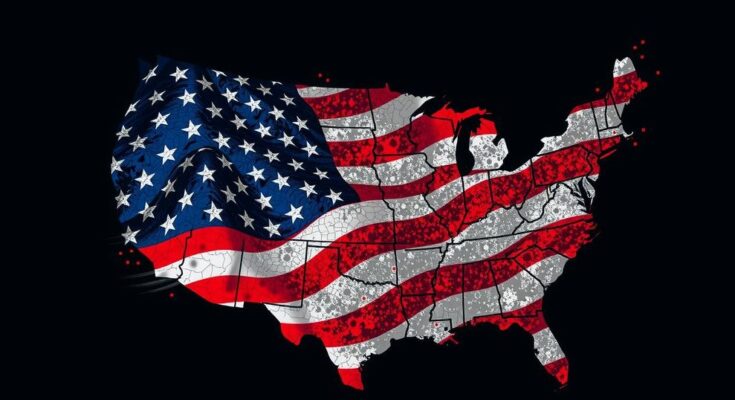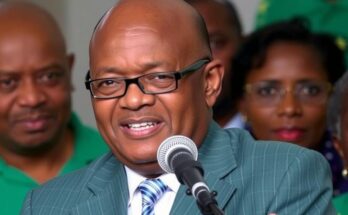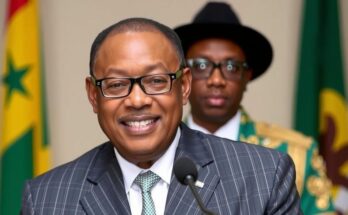In a recent address, Ray Dalio expressed significant concerns about America’s political polarization post-election, emphasizing the need for cohesive leadership and reform. He highlighted the differences between candidates, especially regarding economic strategies, and underscored issues surrounding the national deficit and U.S. Treasury supplies. Dalio recommended gold as part of a diversified investment strategy to mitigate risks in uncertain times.
Ray Dalio, the esteemed billionaire and founder of Bridgewater Associates, has expressed considerable unease regarding the state of America following the recent elections. At the Future Investment Initiative conference in Saudi Arabia, Mr. Dalio articulated his concerns pertaining to the deepening divide between the Democratic and Republican parties, which he perceives as increasingly extreme and detrimental to the national unity necessary for effective governance. “Both of the candidates worry me,” Mr. Dalio stated during an interview with CNBC. He emphasized the urgent need for a unifying leader, stating, “There needs to be a strong leader of the middle, I believe, that makes great reforms. … Neither of the candidates does that for me.” While Mr. Dalio acknowledged that Donald Trump, the Republican candidate, exhibits a more capitalist approach conducive to domestic capital markets when compared to Democratic candidate Kamala Harris, he cautioned that both parties could exacerbate the growing U.S. deficit. He drew attention to the significant disparities in tax policies between the two candidates, specifically noting that Trump’s strategy of increasing tariff revenues could potentially lead to rising prices based on how this revenue impacts internal productivity. Mr. Dalio further elaborated on the implications of the election, stating, “Consequences of the election are really more a left-right question, and it’s a shame because we need to bring the country together in a smart way and make great reforms. We need to do that.” His concerns extend beyond fiscal matters to include pressing issues such as growing internal conflict, external geopolitical tensions, and climate-related challenges. One of his predominant worries involves the mounting supply of U.S. Treasury bonds, with approximately one-third held by foreign investors, presenting a supply-demand imbalance that could result in vulnerabilities for capital markets. “We have a real debt problem. … I think one man’s debts is another man’s assets,” Mr. Dalio remarked, underscoring the potential ramifications for capital formation should economic downturns occur amidst political instability. As for investment strategies in light of these challenges, Mr. Dalio advised that gold should be incorporated into a diversified portfolio to mitigate risk effectively. With profound insights into the socio-political and economic landscape, Mr. Dalio’s perspectives reflect the anxieties present among investors regarding America’s future direction and the necessity for a cohesive and pragmatic approach to governance.
Ray Dalio, an influential figure in the world of finance, has long advocated for political and economic reforms aimed at bridging the divides within American society. His concerns about the polarizing landscape of U.S. politics have grown more pronounced, particularly in light of recent elections. Dalio’s commentary is rooted in his extensive experience as an investor, and it highlights critical issues such as the rising national deficit, geopolitical challenges, and the need for a unified political approach to address these problems effectively. His discussions also underscore the importance of strategic investment during times of economic uncertainty.
In summary, Ray Dalio’s apprehensions about the future of America post-election stem from the increasing polarization of the political landscape, which he believes undermines national cohesion and effective governance. His analysis of the electoral choices warns of potential economic repercussions, particularly concerning the national debt and internal discord. Dalio advocates for a middle-ground leadership that prioritizes unity and reform, alongside strategic investment advice that includes allocating resources to gold as a hedge against market volatility and economic downturns.
Original Source: www.cnbc.com




